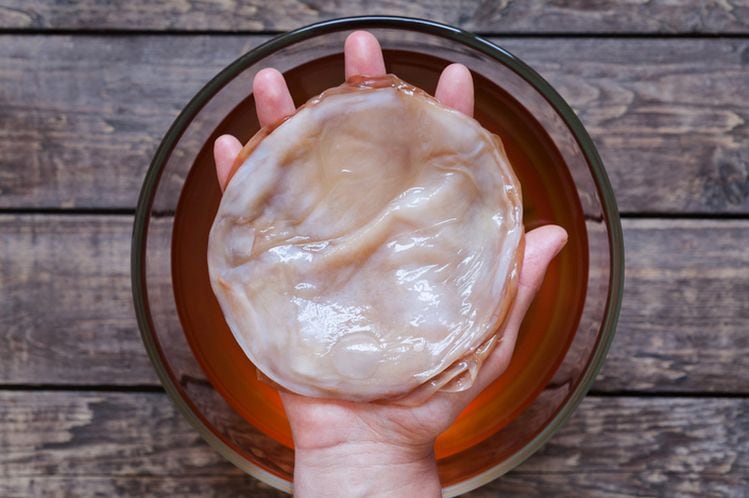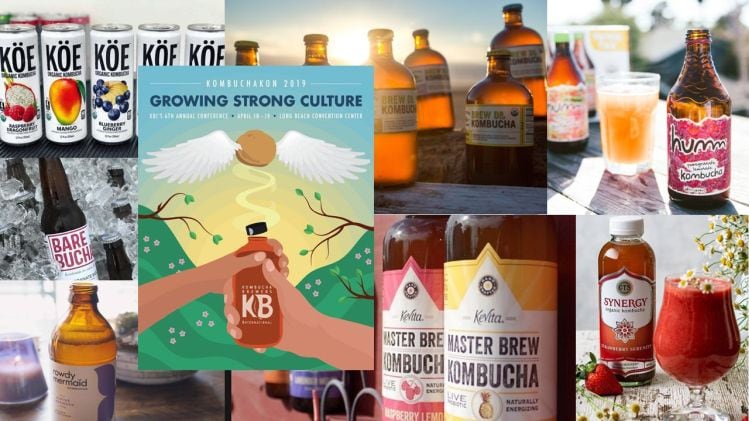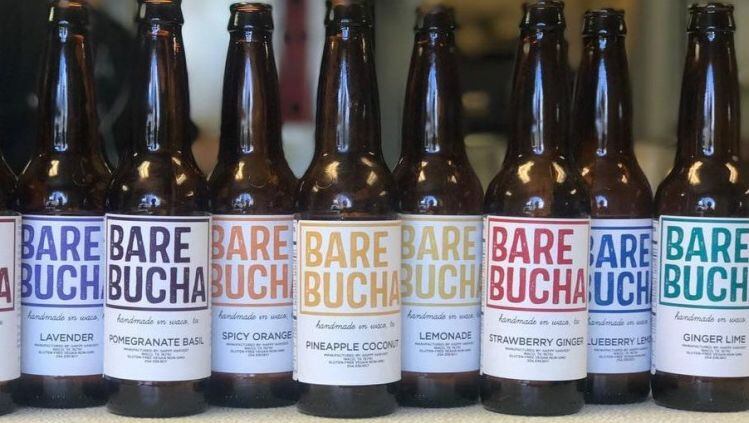Speaking to FoodNavigator-USA as trade association Kombucha Brewers International (KBI) gears up to publish a standard of identity for kombucha, GT said that amid the “plethora of processed, dead, phony foods out there, kombucha is one of the few fully raw, fully living, fully authentic products, and that’s what’s made it special.
“But if you take away the things that make is special - its rawness, its vinegary flavor, its natural effervescence, its visible strands of the culture, the way it’s made with an authentic kombucha SCOBY [symbiotic culture of bacteria and yeast] - then we have to ask ourselves, what are we actually making? added GT, who started his company, now the clear market leader in a multi-million dollar category, in his mother's kitchen as a teenager in the 1990s.
Who is in control of the narrative?
He added: “As new consumers enter the category, what if their first impression of kombucha is a barely flavored sparkling water or tea that comes in a can and can sit on a shelf without any refrigeration, or it has 7% alcohol and tastes like booze?
“Then we run the risk as an industry of not only losing what makes us special, but slowly allowing big companies that have acquired brands and turned them into mass produced kombucha to control the narrative.”
In a bid to differentiate themselves from GT’s, claimed GT - who feels so passionately about the issue he has just given the KBI a $1m endowment to protect 'authentic' kombucha - some brands “are going in the reverse direction.
"Kombucha is now being mass produced by some newer brands that have entered the market and they are positioning them for a mainstream palate. These barely fermented products are missing the heart and soul of what the industry of kombucha should be, and it’s looking more like a new age soft drink.
“And then behind the scenes there is pasteurization, hyper-filtration [some brands use microfiltration to filter out all remaining yeast post production to prevent secondary fermentation in the bottle], artificial [forced] carbonation, spinning [spinning cone technology is used by some brands to distill off some of the alcohol post fermentation], denaturing… and these things are not being disclosed to the consumer.
Controlling alcohol… and making authentic, live, raw kombucha
Asked what was wrong with companies deploying techniques such as spinning cone technology or microfiltration – which are used to produce more consistent products that remain below 0.5% abv throughout their shelf-life - he said:
“There’s nothing wrong with it and I have no problem with companies that are doing this, but you shouldn’t be calling it raw kombucha. You even see companies [making a virtue of the fact that their] kombucha doesn’t have a vinegary flavor or has no visible culture, but to me that’s like saying you’re making a banana that will never bruise or never go bad.
“If you want to make kombucha from concentrate, or pasteurize it, you should tell people what you’re doing.”
Asked if he was confident that it was possible to create what he considered to be an ‘authentic’ live, raw kombucha that stays consistently below 0.5% throughout its shelf life, he said. “Yes absolutely, but there are inherent risks with a unique traditional unrefined product like this. You take the good with the bad.”
Who decides what kombucha is?
But who says GT Dave or even the KBI have a monopoly on the word ‘kombucha’? And why can’t they simply let consumers vote with their wallets?
“Nobody died and made me king [of kombucha],” said GT, “I’m just a messenger. Authentic raw kombucha has been passed down from generation to generation, household to household, friend to friend. Its fundamental recipe is a sweetened tea that’s fermented with a SCOBY culture and is allowed to fully ferment and be its fully expressed self, which is a vinegar flavor with natural effervescence and strands. You can’t take a batch of sweetened tea, dip a SCOBY in it for five minutes and call it kombucha.”
‘What’s stopping someone putting a bottled water on the shelf, slapping ‘kombucha’ on it, and charging five dollars?’
So what happens after the standard is published, and why would 'non-compliant' companies voluntarily stop using the term kombucha or proactively add terms such as, 'from concentrate,' 'diluted,' 'de-alcoholized,' 'pasteurized,' or 'filtered' to their labels if it's not a legal requirement?
“The most important thing to me is to present this information to consumers about all the different kombuchas that are out there and let them decide which version they want,” said GT, who said the standard is designed to start a conversation, first with consumers, and then perhaps with regulators.
"Through educating the consumer, we'll hear what they find is important and then we can say to the legislators, there is potential confusion in the marketplace and we need to clarify what’s what, otherwise what’s stopping someone from putting a bottled water on the shelf, slapping ‘kombucha’ on it, and charging five dollars versus someone that’s actually making authentic kombucha? One gets to ride on the coat tails of the other."
'If my worst competitor gets sued, it still makes me sick to my stomach'
But won’t this just prompt more lawsuits by providing plaintiff’s attorneys with yet more fodder for civil litigation?
That would be “bad news for the category,” argues GT Dave, who has been at the receiving end of several lawsuits in recent years over everything from sugar and alcohol levels to antioxidant claims.
“If my worst competitor gets sued, it still makes me sick to my stomach. These plaintiff’s counsels are finding loopholes and spinning them just to line their pockets [GT’s recently settled a lawsuit and made some changes to its labels but has not admitted liability].
“I hope this standard will encourage people to take the high road because they know that their products may not sell as well if people learn about how they are made or if they are pasteurized."
But he added: “Adding disclosures to your label explaining how your kombucha is made should protect brands from lawsuits. I mean KeVita [which is now owned by PepsiCo] was sued for not disclosing that its products are pasteurized, and now they have a problem on their hands [in a 2017 lawsuit that is still moving through the courts, plaintiff Emma Brenner argued that KeVita's Master Brew Kombucha was "not a true kombucha" on the grounds that it is allegedly "pasteurized after fermentation"].*
“I believe there is room in the marketplace for pasteurized products even if they are not raw kombucha, they just need to be grouped separately. It’s like putting Tropicana pasteurized juice and fresh pressed orange juice next to each other and saying they are the same.”
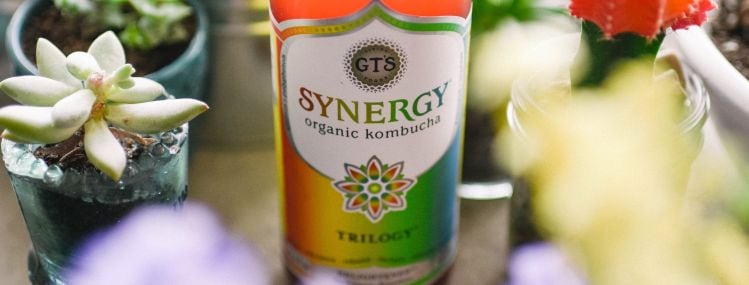
Probiotics and kombucha
So where do probiotics fit into the standard?
FoodNavigator-USA has not seen the final version of the standard - which has not yet been published - but understands that it does not go into detail over probiotics (defined by the WHO as ‘live microorganisms that, when administered in adequate amounts, confer a health benefit on the host’), which some kombucha manufacturers promote on labels.
Right now, several manufacturers add well-characterized probiotic strains backed by clinical data to their kombuchas.
Some do this after a pasteurization step in order to back up claims about live micro-organisms or probiotics on the label, while others argue that their raw unpasteurized products already contain probiotics, but say they add so-called ‘lab-grown’ strains as well because they can’t afford human clinical trials on their finished products.
Asked why GT’s adds Ganeden’s BC30 probiotic strain to selected products if GT believes that his kombucha naturally contains probiotics, he said. “Because currently you can’t make a claim unless you have clinical studies.
“My definition of probiotic, which is what I believe, is just a beneficial microorganism that promotes life, the opposite of an antibiotic, so in my mind anything that’s raw and fermented deserves the word probiotic. I’ve heard comments that fermented foods like miso, kimchi, kombucha do not naturally contain probiotics and I think that’s not true.
“To me it’s like vitamins in pills vs vitamins in foods. They are not the same. Nature knows what it’s doing, which is a similar discussion point in the cannabis world [in which full or broad spectrum plant extracts are now competing with synthetic cannabinoids or isolated cannabinoids produced via microbial fermentation].”
- Read more about the new standard of identity HERE.
- Discover how Bare Bucha’s novel approach to brewing kombucha in stackable rectangular trays could help speed up the fermentation process and keep alcohol levels consistently below 0.5% abv, solving a major technical challenge for the industry: WATCH the VIDEO.
- How big is the US retail market for kombucha? Learn more HERE.
*Speaking to FoodNavigator-USA at the Expo West show in 2018, PepsiCo North American Nutrition president Seth Kaufman did not comment on the lawsuit, but told us:
"KeVita’s kombucha is a legit kombucha. There’s a perception in the trade about what an authentic kombucha is. Not everyone pasteurizes at the same point in the process, but based on our process, I am 100% confident that we have a legitimate kombucha product in the marketplace and I feel really good about KeVita’s products not only being true kombucha, but also having the healthy bacteria that we say we have, right up to the end of the shelf life.”
He added: "I am also really really confident that our sugar and alcohol levels are as we state them on pack at the end of the shelf life [with the implication that other brands may not stand up to the same scrutiny].”
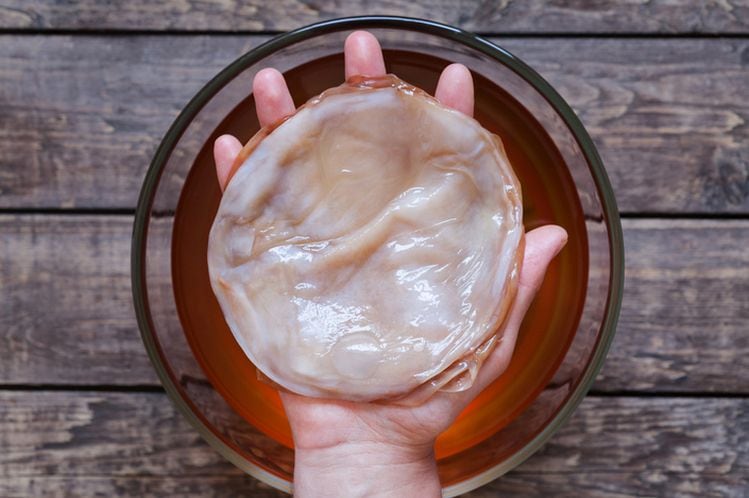
The kombucha standard of identity - which trade association Kombucha Brewers International aims to publish this month - will attempt to define what an ‘authentic’ kombucha is and how it is made, and encourage the use of certain on-pack qualifiers that provide additional clarity about source materials or manufacturing processes.
The move reflects growing unease among purists over the use of ingredients and processes that they believe compromise the integrity of the category. Some of the concern is around products that are diluted post fermentation to reduce the alcohol levels, or made with concentrates rather than tea fermented with a SCOBY (symbiotic culture of bacteria and yeast), or not made with tea at all.


